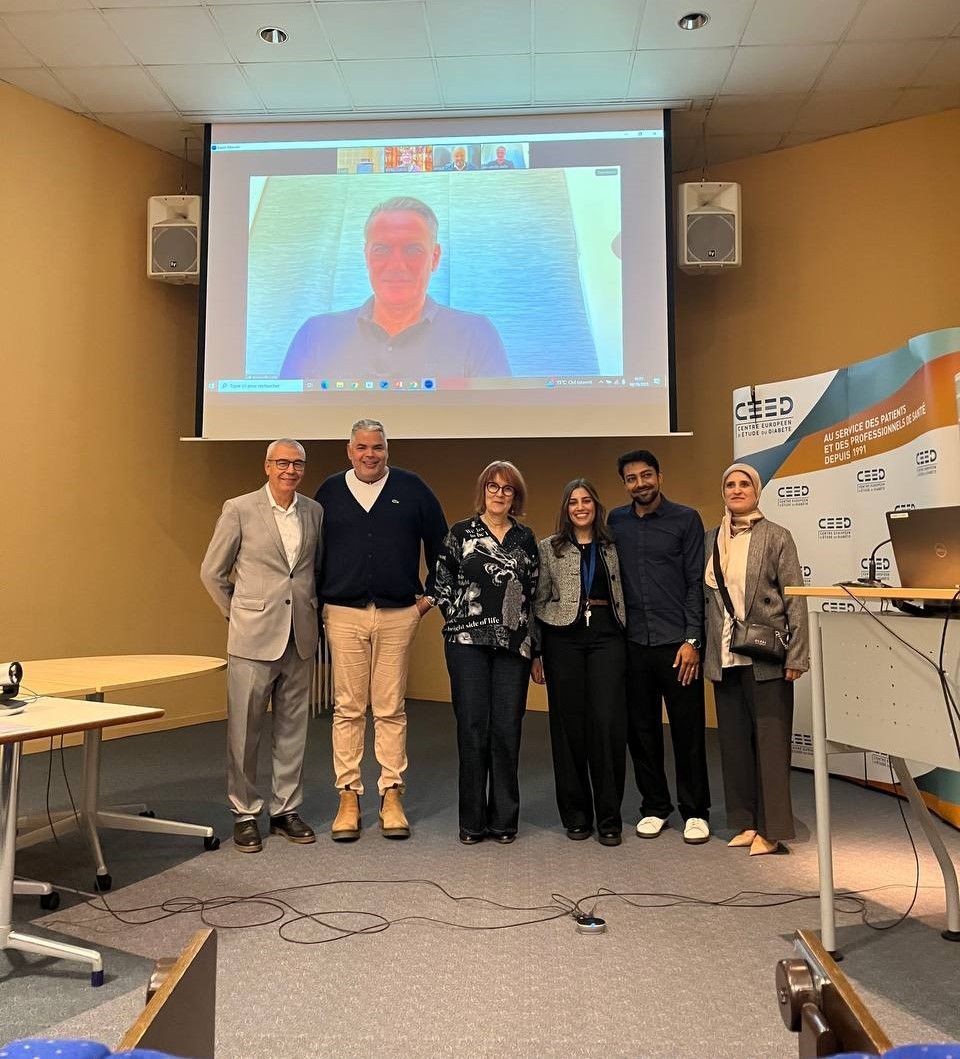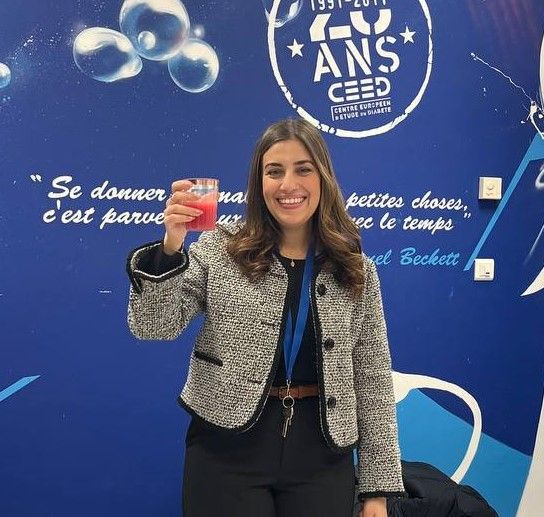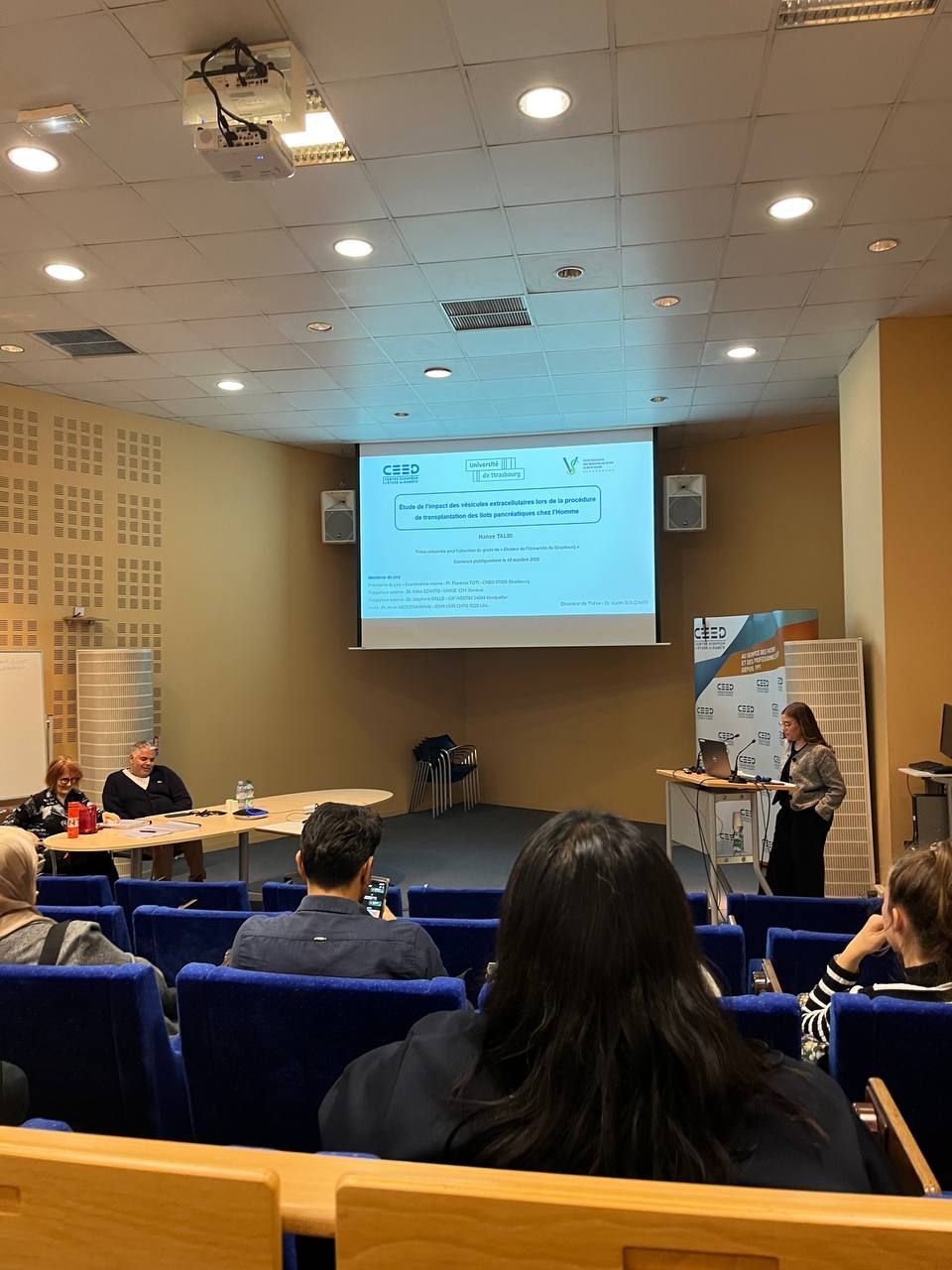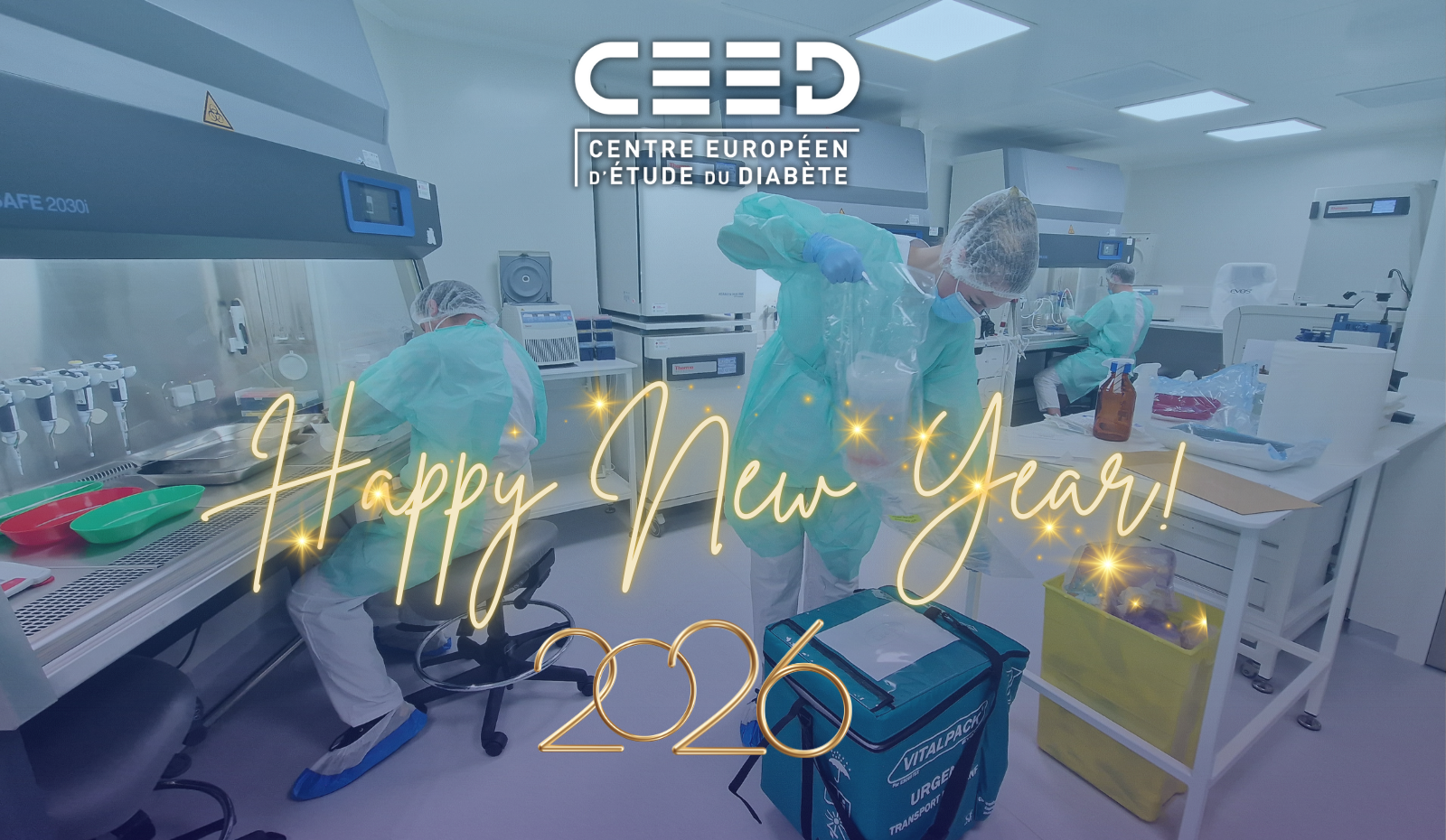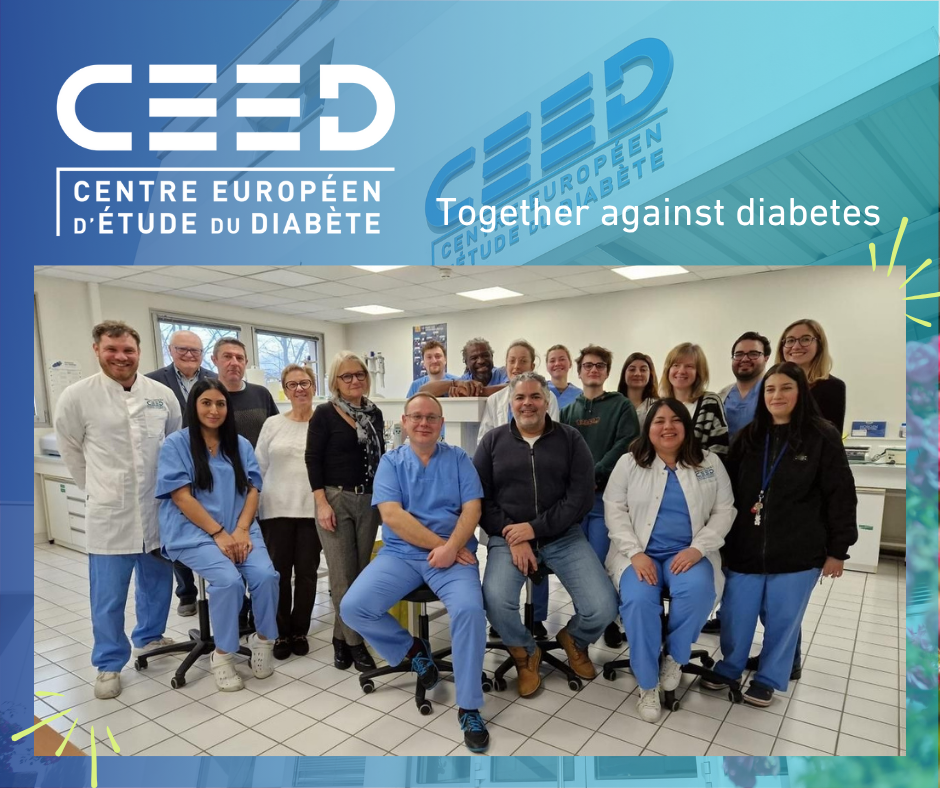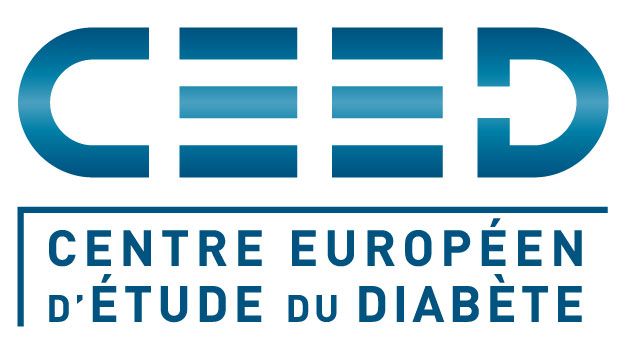PhD Thesis at CeeD: Study of the impact of extracellular vesicles in the process of Human pancreatic islet transplantation
October 10 2025
Congratulations to Hanae Talbi, a fellow PhD student!
She successfully defended his PhD thesis at CeeD's amphitheater in Strasbourg. Well done! To her success and all the work that led her here.
Study of the impact of extracellular vesicles in the process of Human pancreatic islet transplantation
By Hanae Talbi
Supervised by Dr Karim Bouzakri
Summary:
Pancreatic islet transplantation is a promising therapy to restore glycemic control in patients with type 1 diabetes. However, the grafted islets are destroyed, partly due to an inflammatory and pro-coagulant response (IBMIR) induced during the transplantation procedure. To improve islet survival and function, we analyzed the role of extracellular vesicles (EVs) released by human pancreatic islets, cultured under physiological or pro-inflammatory conditions, and their effects on immune cells. We first isolated and characterized EVs from human islets comparing two extraction techniques. We then evaluated their ability to activate macrophages and monocytes using a human monocyte cell line (THP-1). In addition, we analyzed the transcriptomic and post-transcriptomic changes induced by EVs in monocytes. Finally, we isolated EVs from murine islets to use them during an in vivo study.
Our findings show that EVs induce distinct transcriptomic profiles in monocytes depending on their inflammatory origin. Pro-inflammatory EVs inhibited several genes in the hsa04080 pathway, including HTR2A, the serotonin receptor. We have demonstrated that the regulation of HTR2A by EVs is mediated by a novel microRNA (Novel_239). In addition, proinflammatory EVs amplified serotonin activity by increasing TNF-α expression. Serotonin is a neurotransmitter known for its role in modulating inflammation. It is released by several cell types, including pancreatic islet cells, monocytes, and hepatocytes. The interaction between EVs and serotonin during transplantation may worsen islet inflammation and partly cause graft loss. Finally, we showed that EVs from murine islets do not reflect the properties of human EVs and therefore not suitable for in vivo studies.
Thank you to the thesis defense jury members:
- Dr Ildiko Szanto from University of Geneva
- Dr Stéphane Dalle from Montpellier University
- Dr Florence Toti from Strasbourg University
- Dr Amar Abderrahmani from Lille University
- Dr Karim Bouzakri from CeeD
